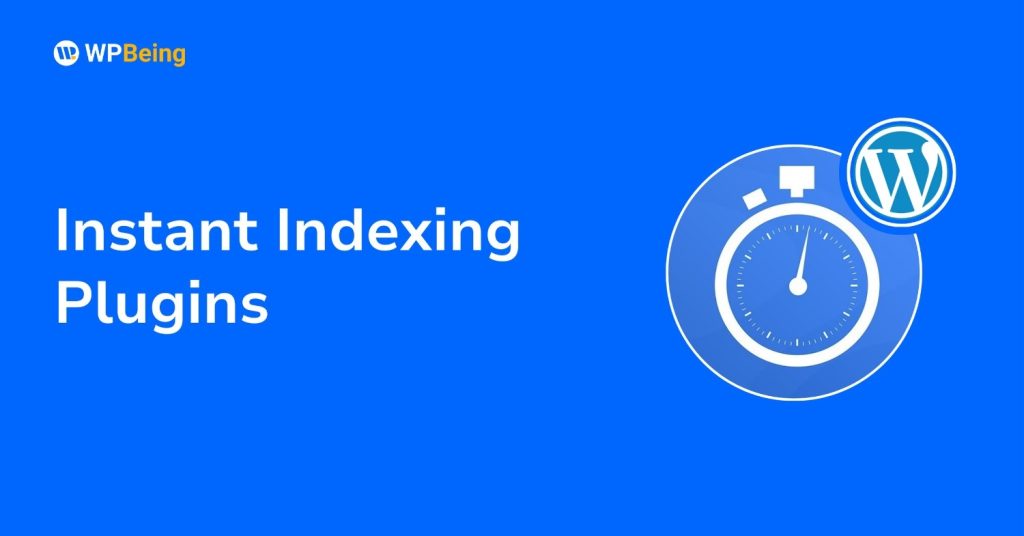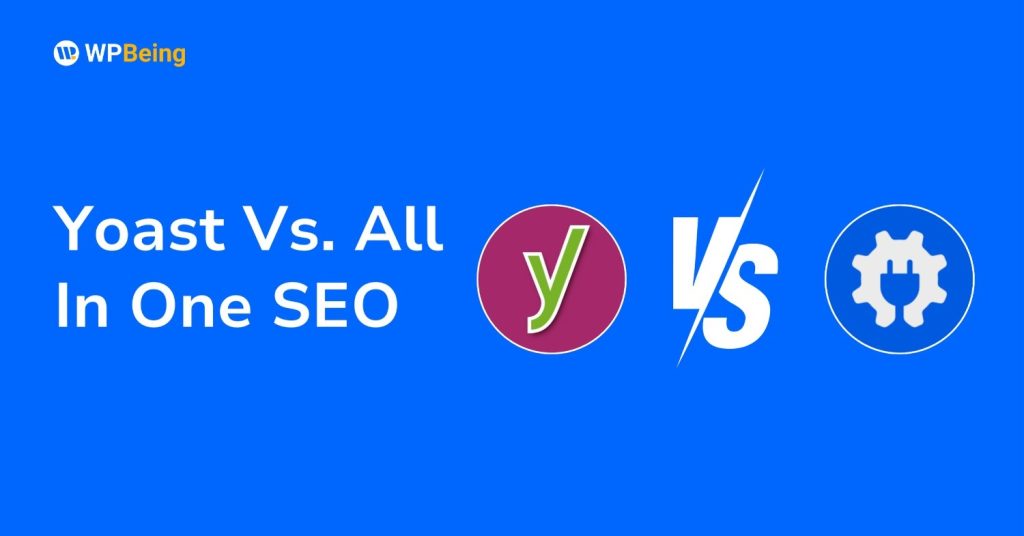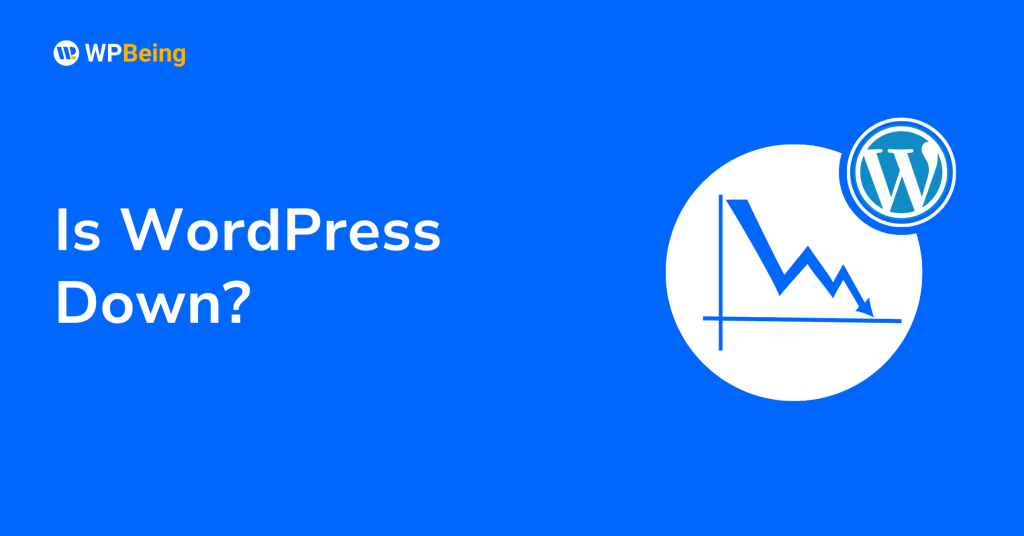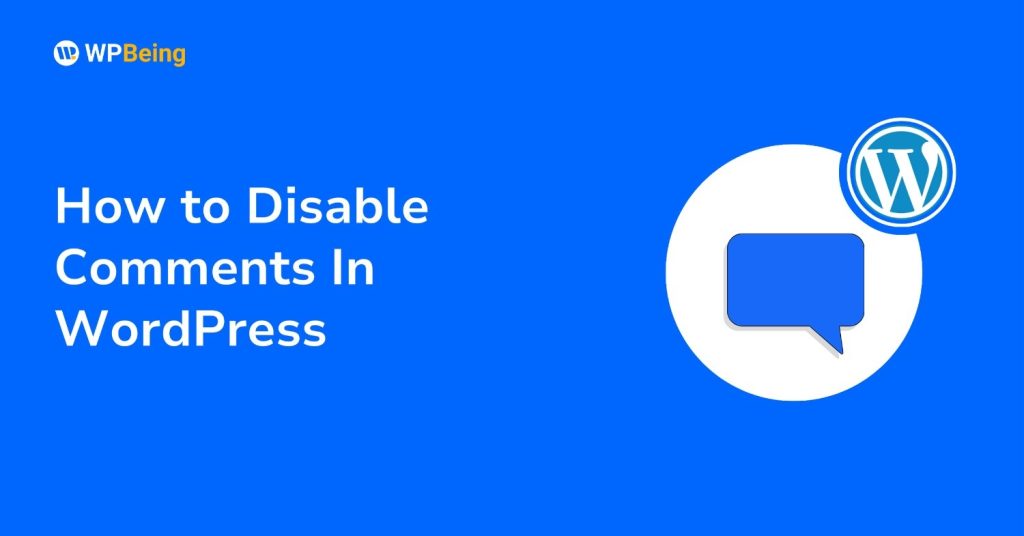As of March 2025, WordPress continues to dominate the website development industry, powering 43.5% of all websites worldwide. Its influence is even more pronounced among websites using a content management system (CMS), commanding an impressive 61.6% market share.
This article breaks down WordPress’s market share, how it compares to other CMS platforms, and why it’s the leading choice. It also looks at how different WordPress versions are used, showing trends in updates and adoption.
WordPress Market Share: Key Highlights
- As of 2025, WordPress leads the website-building industry with a 61.6% market share.
- The platform powers 44% of all websites, making it the top choice.
- Most WordPress sites (87.4%) run on Version 6.
- Elementor is the most popular page builder, used by 27.7% of WordPress sites.
- The U.S. has the most WordPress websites, with 3.04 million (10% of all sites).
WordPress Market Share 2025
WordPress dominates the website-building industry with a massive 61.6% market share, far surpassing all other platforms combined.
The second-largest platform, Shopify, holds only 6.7%—nearly 9 times smaller than WordPress.
Wix (5.1%) and Squarespace (3.2%) are popular among small businesses and individual users, but they still trail far behind.
Even when you add up the market share of Shopify, Wix, Squarespace, Joomla, Drupal, Webflow, Adobe Systems, and PrestaShop, their combined 21.5% is nowhere near WordPress’s dominance.
From blogs and business sites to e-commerce stores (with WooCommerce), WordPress remains the go-to platform, holding its lead despite rising competitors.
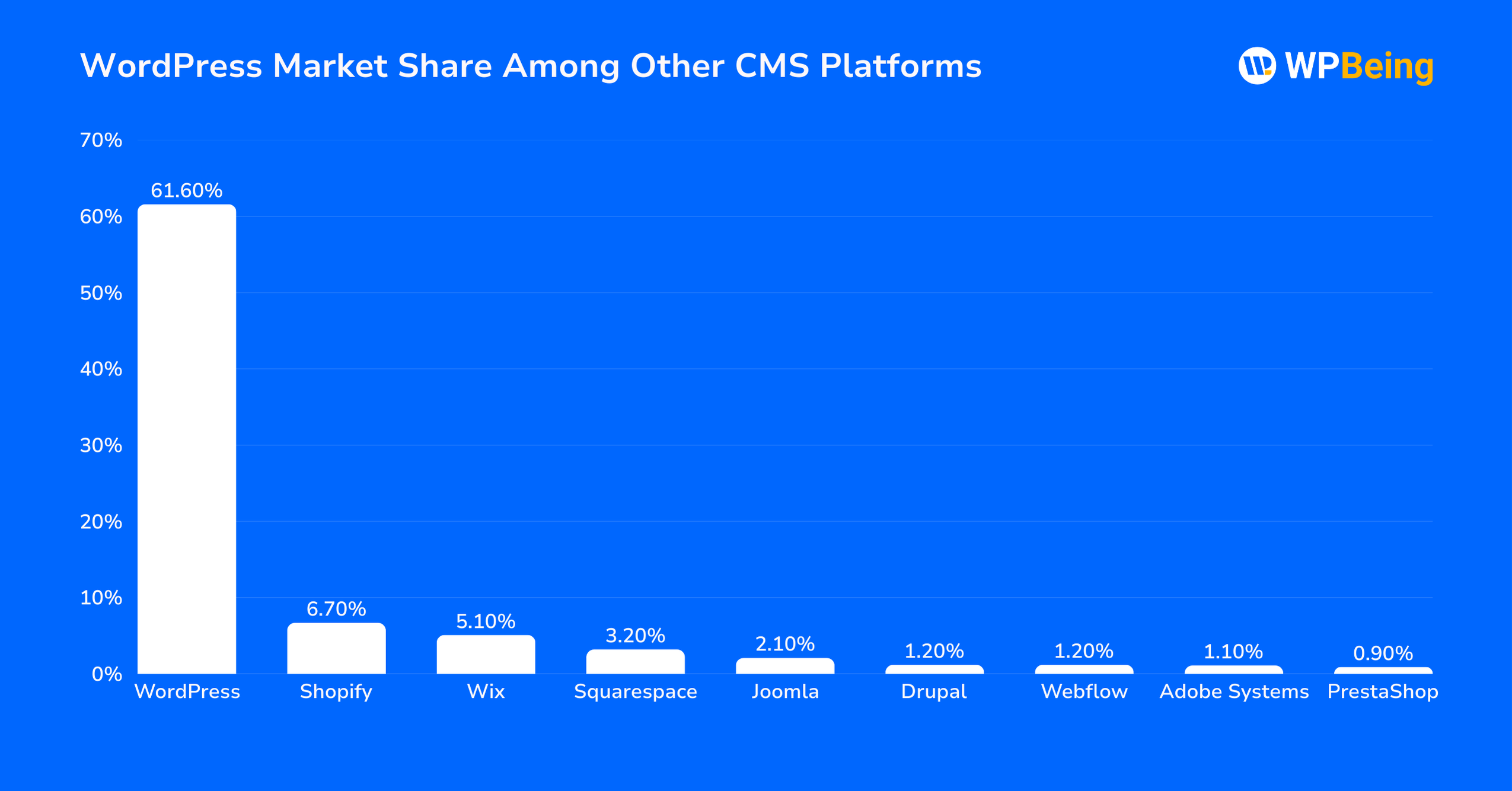
Here is a table displaying WordPress’ Market share among other CMS platforms:
| Platform | Market Share |
|---|---|
| WordPress | 61.6% |
| Shopify | 6.7% |
| Wix | 5.1% |
| Squarespace | 3.2% |
| Joomla | 2.1% |
| Drupal | 1.2% |
| Webflow | 1.2% |
| Adobe Systems | 1.1% |
| PrestaShop | 0.9% |
Source: W3Tceh
Share Of CMS Websites Using WordPress
With a 44% market share, WordPress remains the most widely used website-building platform.
Wix, the second-largest platform, holds only 11%, which is four times smaller than WordPress.
Even when combined, the market share of Wix (11%), Squarespace (6%), GoDaddy Website Builder (4%), and Blogger (4%) amounts to only 25%, which is still significantly lower than WordPress’s share.
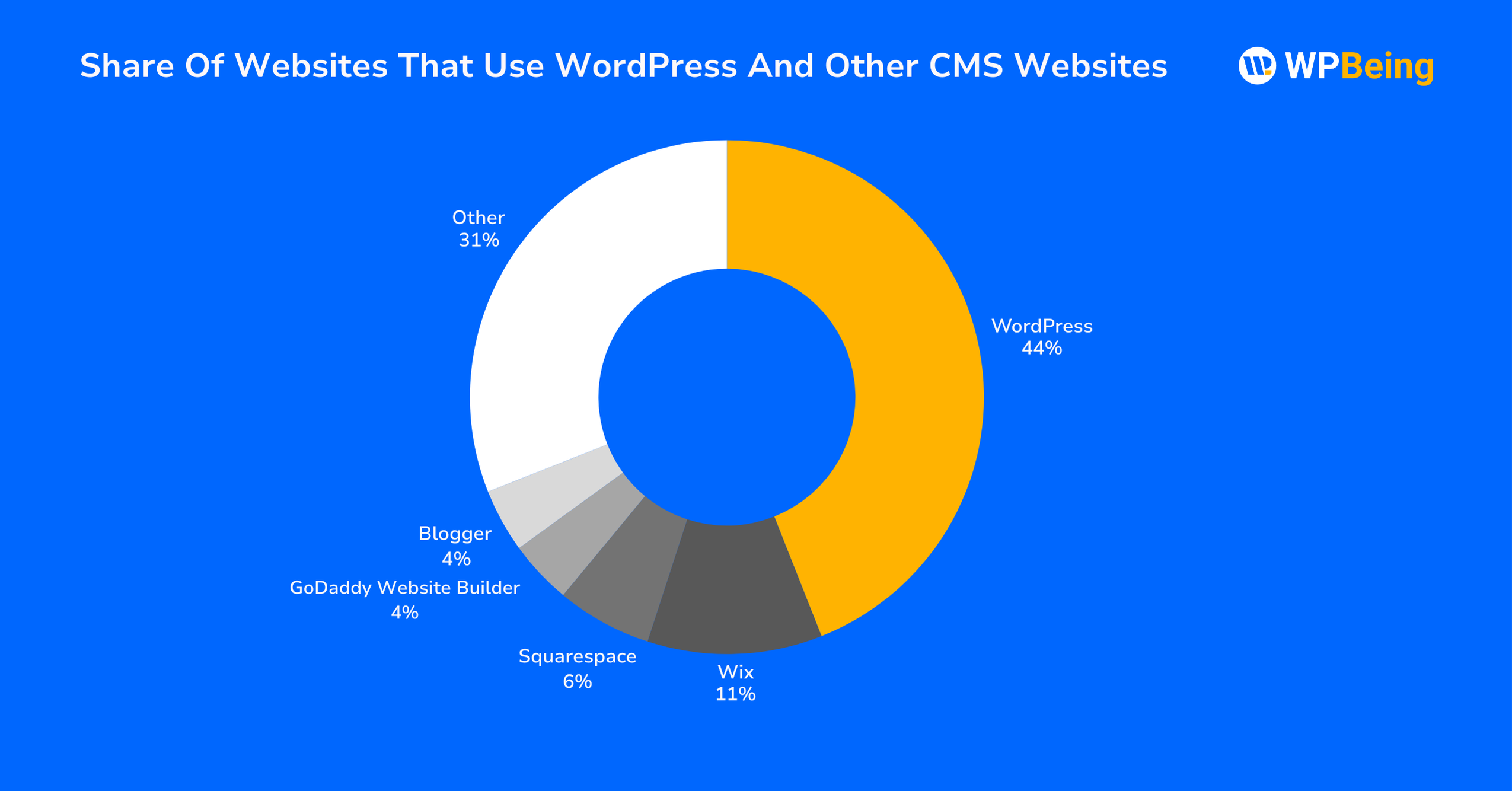
Here is a comparison of the share of websites that use WordPress and other CMS websites:
- WordPress: 44%
- Wix: 11%
- Squarespace: 6%
- GoDaddy Website Builder: 4%
- Blogger: 4%
- Other: 31%
Source: Built With
WordPress Market Share By Version
87.4% of WordPress websites currently operate on Version 6.
This demonstrates a strong commitment among users to staying updated with the latest security, performance enhancements, and features.
However, 9% of websites continue to run on Version 5, indicating that some users have yet to transition.
The usage of older versions is steadily declining, with Version 4 accounting for 3.3% of websites and Version 3 nearly obsolete at 0.3%.
The widespread adoption of Version 6 highlights the growing emphasis on security, efficiency, and compatibility, making it the preferred choice for most WordPress users. Websites still relying on outdated versions may face increased security risks and limited functionality.
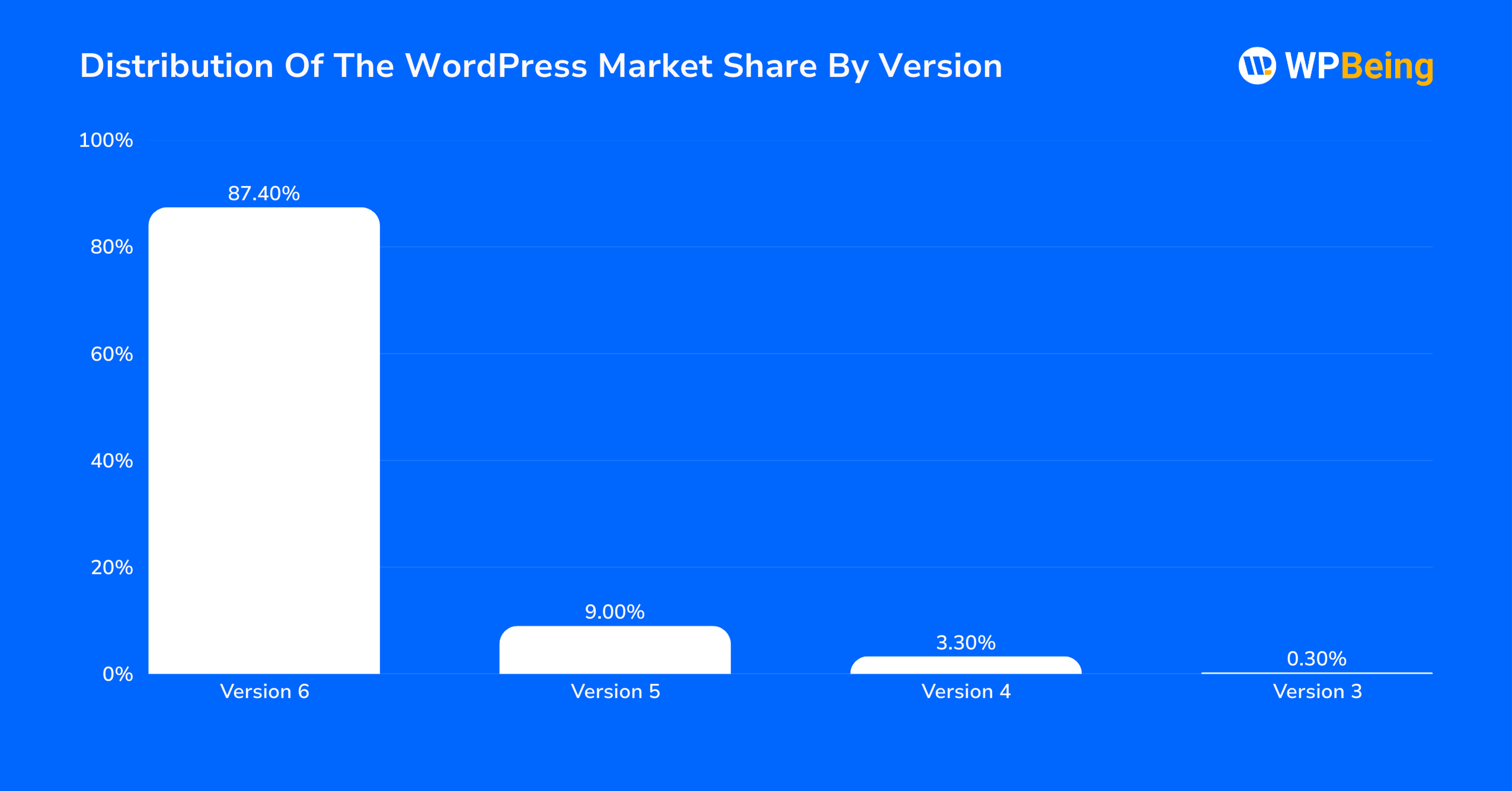
Here is a table displaying the distribution of the WordPress Market share by Version:
| WordPress Version | Market Share |
|---|---|
| Version 6 | 87.4% |
| Version 5 | 9.0% |
| Version 4 | 3.3% |
| Version 3 | 0.3% |
Source: W3Tech
WordPress Market Share by Subcategories
Elementor stands as the most widely used WordPress page builder, powering 27.7% of all WordPress websites—representing more than a quarter of the market.
WooCommerce follows closely with 20.9%, solidifying its position as the leading solution for WordPress-based e-commerce websites.
Elementor and WooCommerce collectively dominate the market, accounting for nearly half (48.6%) of all WordPress sites, highlighting their widespread adoption and influence.
WPBakery ranks third with 9.5%, though it remains significantly behind the top two.
Beyond the leading three, the market share declines sharply, with Beaver Builder (1.0%), 10Web Photo Gallery (0.7%), and NextGEN Gallery (0.5%) holding only a small fraction of the market.
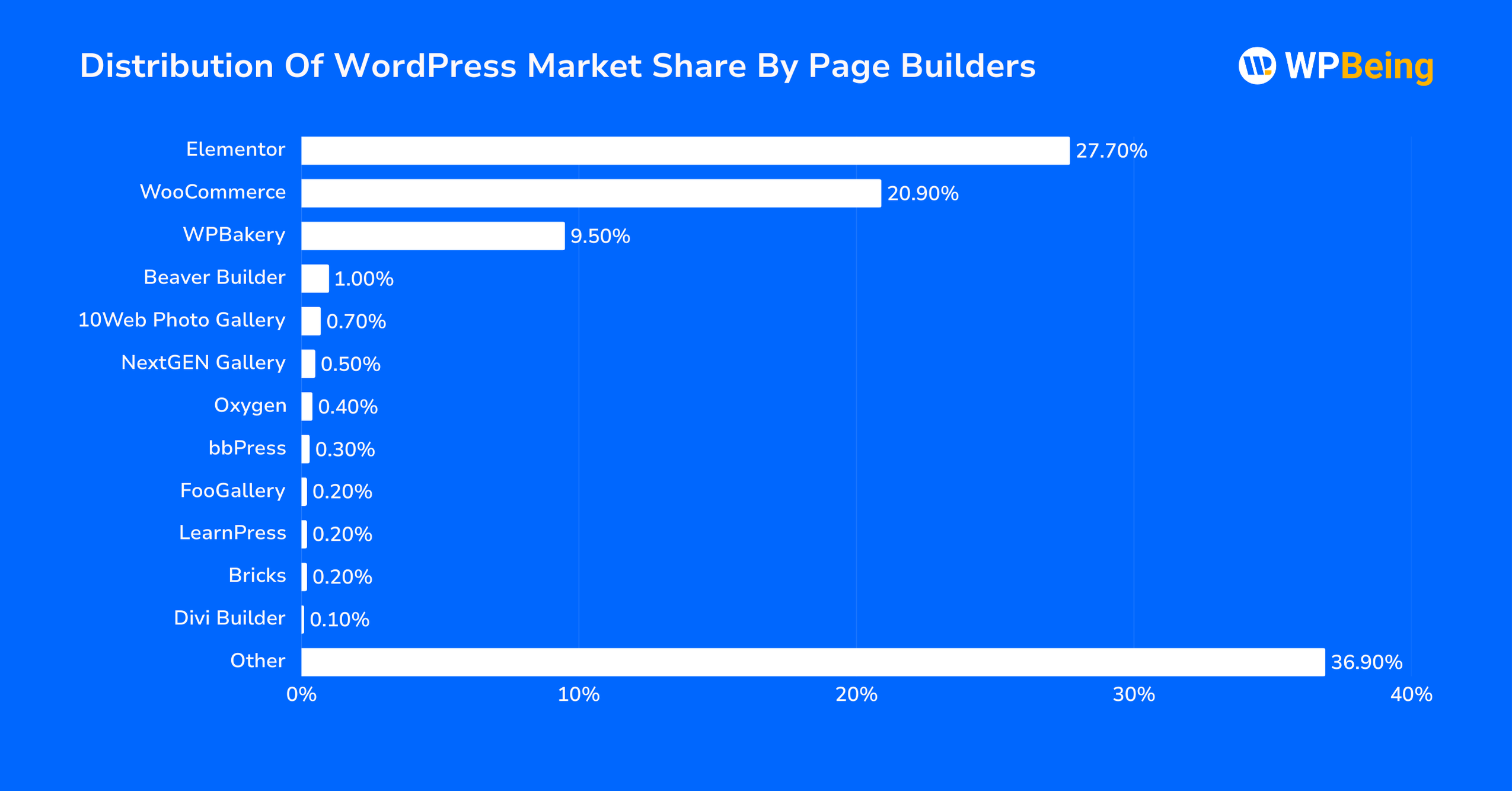
Here is a table displaying the distribution of WordPress Market Share By page builders:
| Builder | Market Share |
|---|---|
| Elementor | 27.7% |
| WooCommerce | 20.9% |
| WPBakery | 9.5% |
| Beaver Builder | 1.0% |
| 10Web Photo Gallery | 0.7% |
| NextGEN Gallery | 0.5% |
| Oxygen | 0.4% |
| bbPress | 0.3% |
| FooGallery | 0.2% |
| LearnPress | 0.2% |
| Bricks | 0.2% |
| Divi Builder | 0.1% |
| Other | 36.9% |
Source: W3Tech
WordPress Market Share By Country
The United States has the highest number of WordPress websites, with 3.04 million, accounting for 10% of all live WordPress sites.
This is more than double the number of websites in Germany (1.34 million, 4.4%), the second-largest market.
Several European countries, including Germany (4.4%), the United Kingdom (3.15%), France (2.58%), the Netherlands (2.01%), Italy (1.92%), and Spain (1.57%), collectively hold a significant share of the global WordPress website distribution.
Meanwhile, Brazil (2.5%) and India (1.78%) are growing rapidly, showing an increasing demand for WordPress, especially in non-English-speaking regions.
Together, the United States, Germany, United Kingdom, France, and Brazil account for nearly 22.6% of all WordPress websites, highlighting the platform’s strong presence in both established and emerging markets.
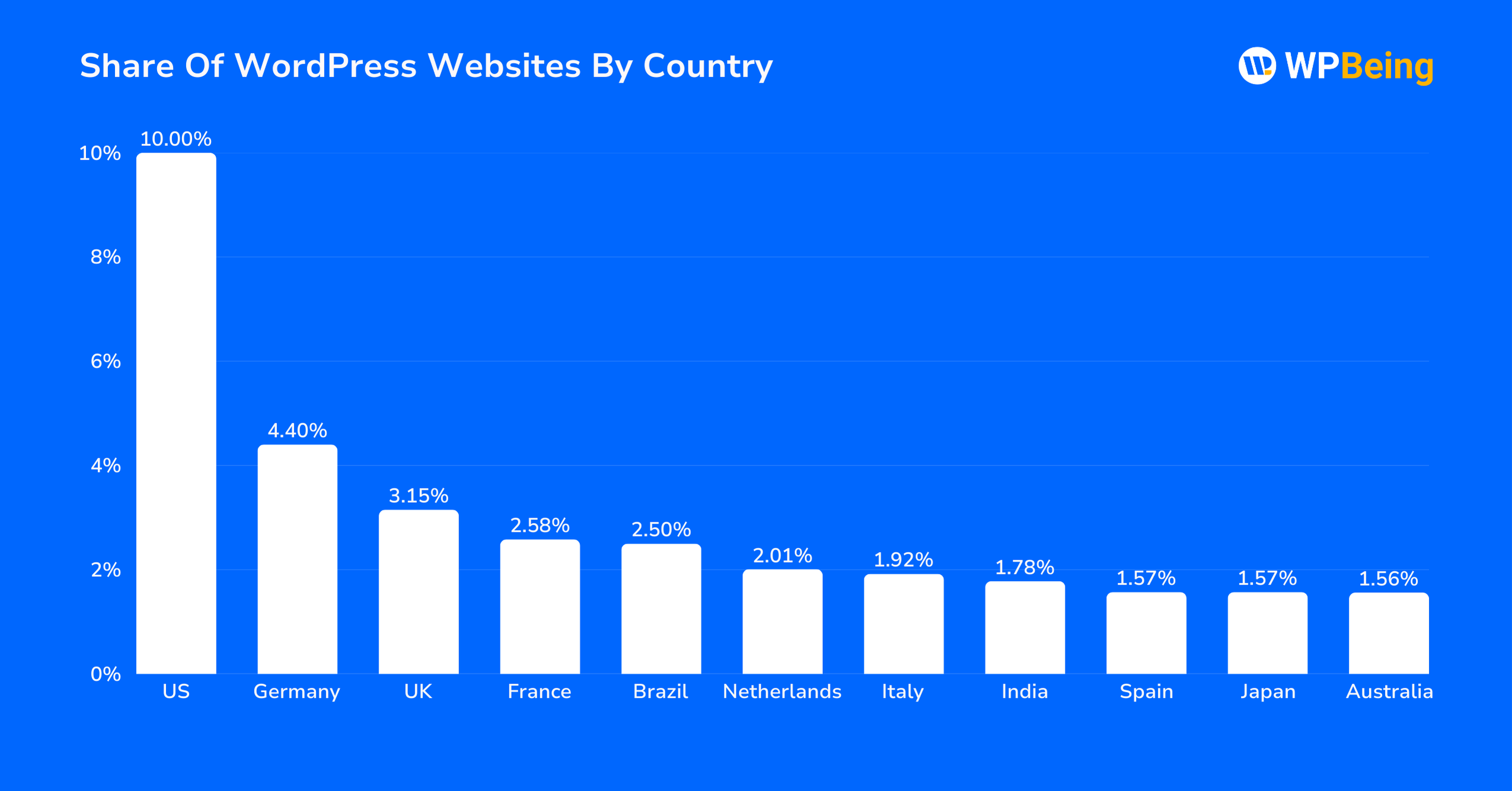
Here’s the updated table with the percentage share of WordPress websites by country with respect to 30,462,105 live websites:
| Country | Number of WordPress Websites | Percentage Share |
|---|---|---|
| United States | 3,044,641 | 10.00% |
| Germany | 1,340,734 | 4.40% |
| United Kingdom | 959,115 | 3.15% |
| France | 784,767 | 2.58% |
| Brazil | 761,066 | 2.50% |
| Netherlands | 611,592 | 2.01% |
| Italy | 585,780 | 1.92% |
| India | 543,319 | 1.78% |
| Spain | 479,757 | 1.57% |
| Japan | 477,851 | 1.57% |
| Australia | 474,143 | 1.56% |
Source: Built With
What Percentage Of The Internet Is WordPress?
As of March 2025, WordPress powers 43.5% of all websites worldwide, making it the most widely used website-building platform.
This means that nearly half of the internet relies on WordPress, reflecting its popularity and reliability. Its widespread use is driven by its flexibility, ease of use, and vast plugin ecosystem, making it a top choice for businesses, bloggers, and developers alike.
Source: WPZOOM
Suggested Reads:
Conclusion: WordPress Leads With A 61.6% Market Share, Outpacing Competitors
WordPress remains the top choice for website building, powering 43.5% of all websites and holding 61.6% of the CMS market. Its user-friendly design, flexibility, and vast plugin ecosystem make it ideal for businesses, bloggers, and developers.
Most WordPress sites (87.4%) run on Version 6, showing strong adoption of updates for security and performance. Elementor leads as the most popular page builder (27.7%), while WooCommerce dominates eCommerce with a 20.9% share.
With millions of active sites and ongoing improvements, WordPress continues to lead the industry, remaining a top choice for all website needs.

